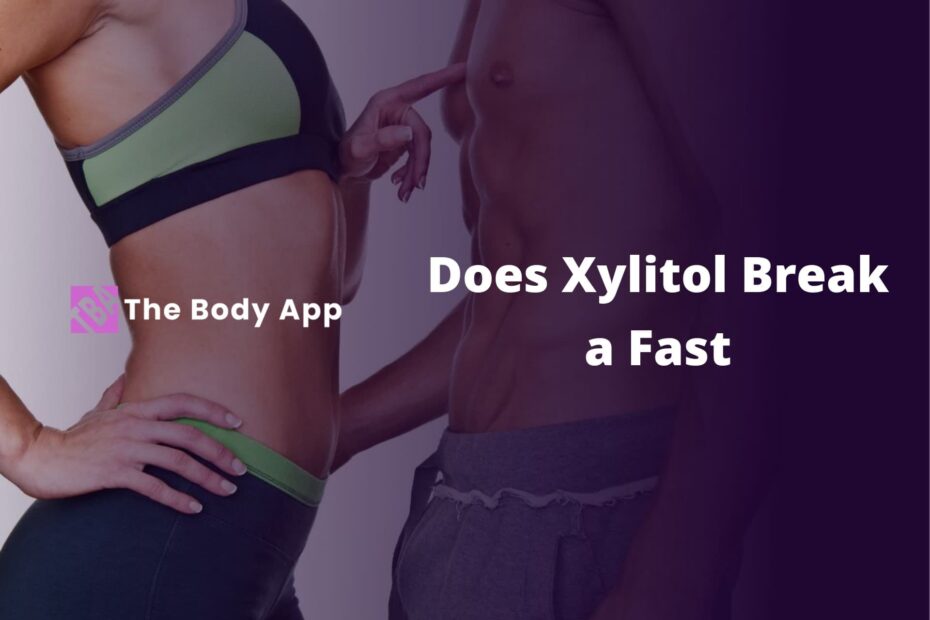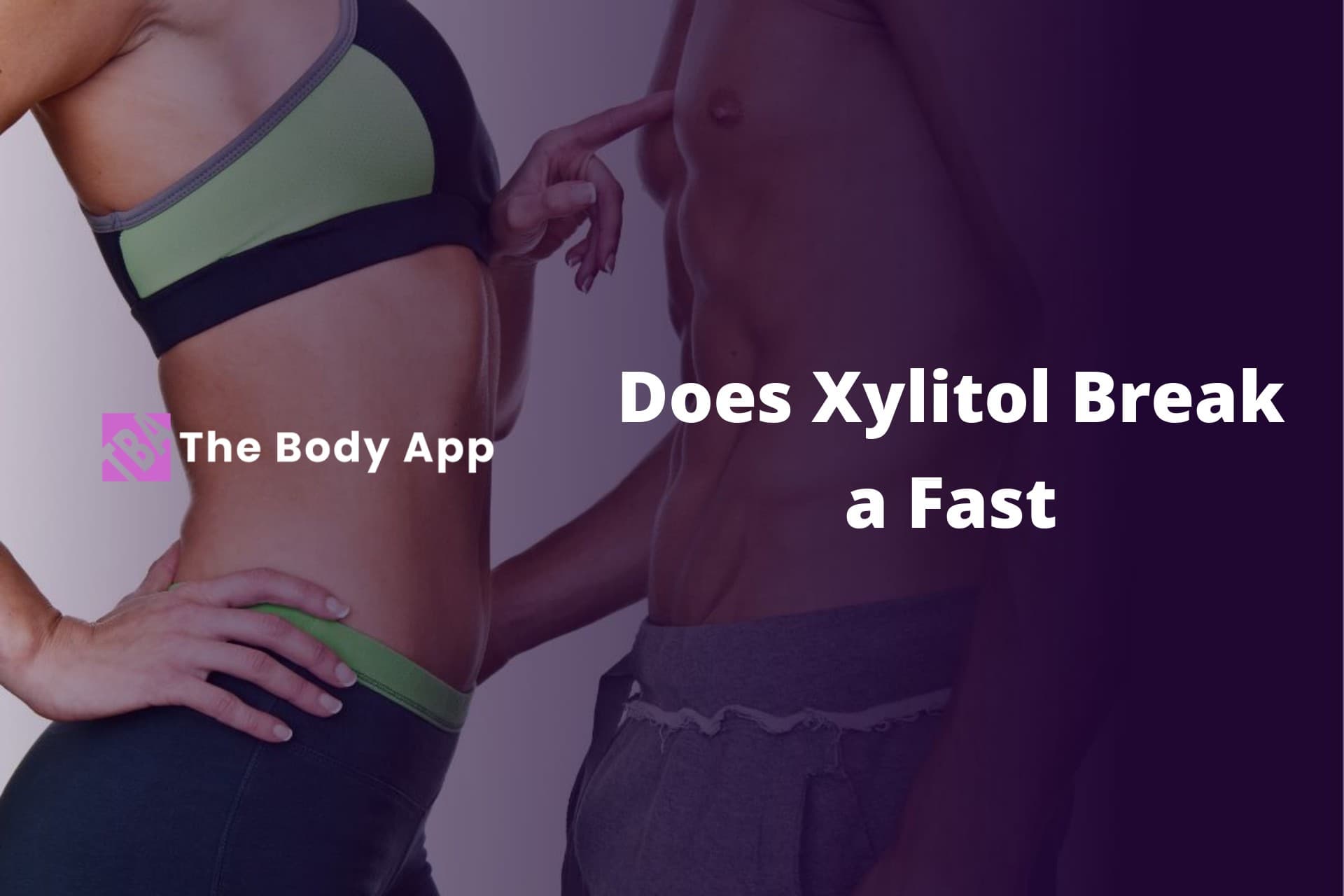Do you want to know if xylitol breaks your fast? Well, look no further! In this article, we’ll dive into the science behind fasting and xylitol.
You’ll gain a better understanding of how xylitol affects insulin levels and autophagy during fasting. Plus, we’ll explore whether xylitol disrupts ketosis while you’re fasting.
By the end, you’ll have a comprehensive view of the benefits and drawbacks of using xylitol during your fasting journey. So, let’s get started!
The Science Behind Fasting and Xylitol
The research suggests that xylitol does not disrupt a fast. When it comes to fasting, many people wonder if consuming certain substances, like xylitol, can affect the process. Xylitol is a natural sugar substitute that is commonly used as a sweetener in various products such as chewing gum and toothpaste. It has been found to have several potential benefits for gut health.
Studies have shown that xylitol may help promote the growth of beneficial bacteria in the gut, which can contribute to a healthier digestive system. Additionally, xylitol has been found to have minimal impact on blood sugar levels, making it suitable for individuals who are monitoring their glucose levels during fasting.
Furthermore, some evidence suggests that consuming xylitol during fasting may actually help reduce hunger levels. This could be attributed to its ability to activate certain taste receptors in the mouth that signal satiety to the brain.
However, it’s important to note that individual responses may vary. Some people might experience gastrointestinal discomfort or an increase in hunger after consuming xylitol during fasting. Therefore, it is advisable to listen to your body and consult with a healthcare professional before incorporating xylitol into your fasting routine.
Understanding the Impact of Xylitol on Insulin Levels
Understanding how xylitol affects insulin levels during a fast can provide valuable insights into its impact on blood sugar and insulin response. When it comes to fasting, the main goal is to keep your body in a state of ketosis, where it relies on stored fats for energy instead of glucose. Insulin plays a crucial role in this process since it regulates blood sugar levels.
Xylitol, a popular sugar substitute, has been found to have minimal impact on blood sugar and insulin response.
Studies have shown that xylitol has a glycemic index (GI) of 7, which is significantly lower than regular table sugar. This means that consuming xylitol does not cause a significant rise in blood sugar levels. Additionally, xylitol has been found to stimulate only a minimal release of insulin compared to other sweeteners like glucose or fructose.
In fact, some studies suggest that consuming xylitol may even have benefits for individuals with diabetes by improving insulin sensitivity and reducing postprandial glucose levels. However, it’s important to note that these findings are still preliminary and more research is needed.
Overall, if you’re following a fast and looking for an alternative sweetener that won’t disrupt your metabolic state or spike your insulin levels significantly, xylitol seems to be a suitable option based on current evidence.
Xylitol’s Effect on Autophagy During Fasting
When it comes to autophagy and xylitol, it’s important to consider how this sugar substitute may affect the process of cellular self-cleansing during fasting.
While there is limited research specifically addressing the impact of xylitol on autophagy, some experts suggest that consuming xylitol during a fast could potentially disrupt or inhibit this beneficial process.
Additionally, when discussing fasting and xylitol, it’s crucial to understand that although xylitol is considered low in calories and has a minimal effect on insulin levels, it can still trigger an insulin response which may interfere with the metabolic benefits of fasting.
Autophagy and Xylitol
You can still promote autophagy while consuming xylitol during your fast. Contrary to popular belief, xylitol does not significantly impact autophagy regulation or interfere with the cellular process of self-cleaning. Here’s why:
- Xylitol is a sugar alcohol that is metabolized differently than regular sugar. It has a minimal effect on blood glucose and insulin levels, which are key factors in autophagy regulation.
- Studies have shown that xylitol does not activate mTOR, a protein complex that inhibits autophagy.
- Xylitol has been found to have antioxidant properties, which may actually support autophagic processes by reducing oxidative stress.
- While excessive consumption of xylitol can have gastrointestinal effects, moderate intake during fasting should not disrupt the benefits of autophagy.
Fasting and Xylitol
Contrary to common belief, incorporating xylitol into your fasting routine is unlikely to disrupt the benefits of autophagy.
Xylitol is a sugar alcohol that has gained popularity as a low-calorie sweetener and is often used in chewing gum, toothpaste, and other oral health products.
When it comes to fasting, xylitol has some potential benefits. Firstly, it has a minimal impact on blood sugar levels, making it suitable for people following a low-carbohydrate or ketogenic diet during their fast.
Secondly, xylitol has been shown to have antibacterial properties and may help prevent dental cavities by reducing plaque formation.
However, it’s important to note that consuming large amounts of xylitol can cause digestive issues such as bloating and diarrhea. Therefore, moderation is key when incorporating xylitol into your fasting routine.
Does Xylitol Disrupt Ketosis During a Fast
If you consume xylitol during a fast, it may disrupt ketosis. Xylitol is a sugar substitute often used as a sweetener in certain foods and beverages. While it has some benefits, such as its impact on dental health, consuming it during a fast can have negative effects on weight loss goals and the maintenance of ketosis.
Here are some reasons why xylitol may disrupt ketosis during a fast:
- Caloric content: Xylitol contains calories, although fewer than regular sugar. Consuming even small amounts of calories can break your fast and potentially kick you out of ketosis.
- Insulin response: Xylitol has been found to stimulate insulin secretion in some individuals. Insulin regulates blood sugar levels and can inhibit fat burning, which is crucial for achieving and maintaining ketosis.
- Digestive impact: Some people may experience digestive issues when consuming xylitol during a fast. This can lead to discomfort or disruptions in the fasting process.
It’s important to note that individual responses to xylitol may vary. If you’re following a strict fasting protocol or aiming for optimal results in terms of weight loss and ketosis, it’s best to avoid consuming xylitol during your fasts. Instead, stick to water or other non-caloric beverages to support your fasting goals while avoiding any potential disruptions.
Exploring the Benefits and Drawbacks of Xylitol in Fasting
One of the benefits of xylitol in fasting is its impact on dental health. Xylitol has been shown to have positive effects on oral health by reducing the risk of tooth decay and promoting remineralization of teeth. This is because xylitol cannot be metabolized by bacteria in the mouth, which reduces their ability to produce harmful acids. Furthermore, xylitol stimulates saliva production, which helps wash away food particles and neutralize acids.
However, when it comes to weight loss and maintaining ketosis during fasting, xylitol may not be the best choice. Xylitol is a sugar alcohol that does contain calories and can raise blood sugar levels. Consuming xylitol can potentially disrupt ketosis as it can be converted into glucose through a process called gluconeogenesis. This increase in blood sugar levels can inhibit fat burning and make it more challenging for individuals trying to lose weight or maintain a state of ketosis.
Additionally, while xylitol is generally considered safe for most people when consumed in moderation, some individuals may experience digestive issues such as bloating or diarrhea due to its impact on gut health. It’s important to listen to your body and adjust your intake accordingly if you experience any adverse effects.
Xylitol Alternatives for a Fasting Lifestyle
When exploring alternatives for a fasting lifestyle, it’s important to consider other sugar substitutes that have minimal impact on blood sugar levels. Xylitol sweeteners can be a popular choice, but there are also other options worth considering.
Here are four alternatives to xylitol that you might find useful:
- Stevia: This natural sweetener is derived from the leaves of the stevia plant and has zero calories. It does not raise blood sugar levels and is considered safe for consumption.
- Erythritol: Another sugar alcohol like xylitol, erythritol provides sweetness without impacting blood sugar levels. It is low in calories and generally well-tolerated by most people.
- Monk fruit extract: Derived from the monk fruit, this sweetener contains zero calories and has no effect on blood sugar levels. It is often used as a natural alternative to sugar.
- Allulose: A rare naturally occurring sugar found in small quantities in foods like wheat and raisins, allulose has minimal impact on blood glucose levels.
These alternatives provide options for those looking to reduce their intake of regular sugars while still enjoying a touch of sweetness during fasting periods. Remember to consult with your healthcare provider before making any significant changes to your diet or fasting routine.
Conclusion
In conclusion, xylitol does not break a fast. It has minimal impact on insulin levels and does not disrupt autophagy or ketosis during fasting.
While it may have some benefits, such as promoting dental health and being a low-calorie sweetener, it is important to note that there are alternative options available for those following a fasting lifestyle.
Remember, knowledge is power when it comes to making informed decisions about your dietary choices!

